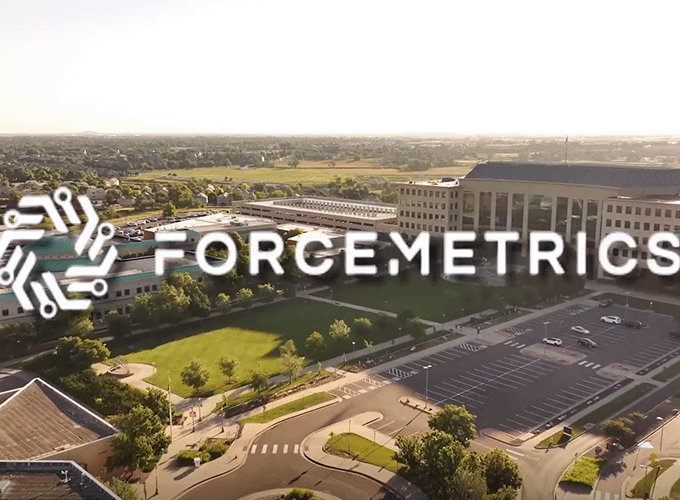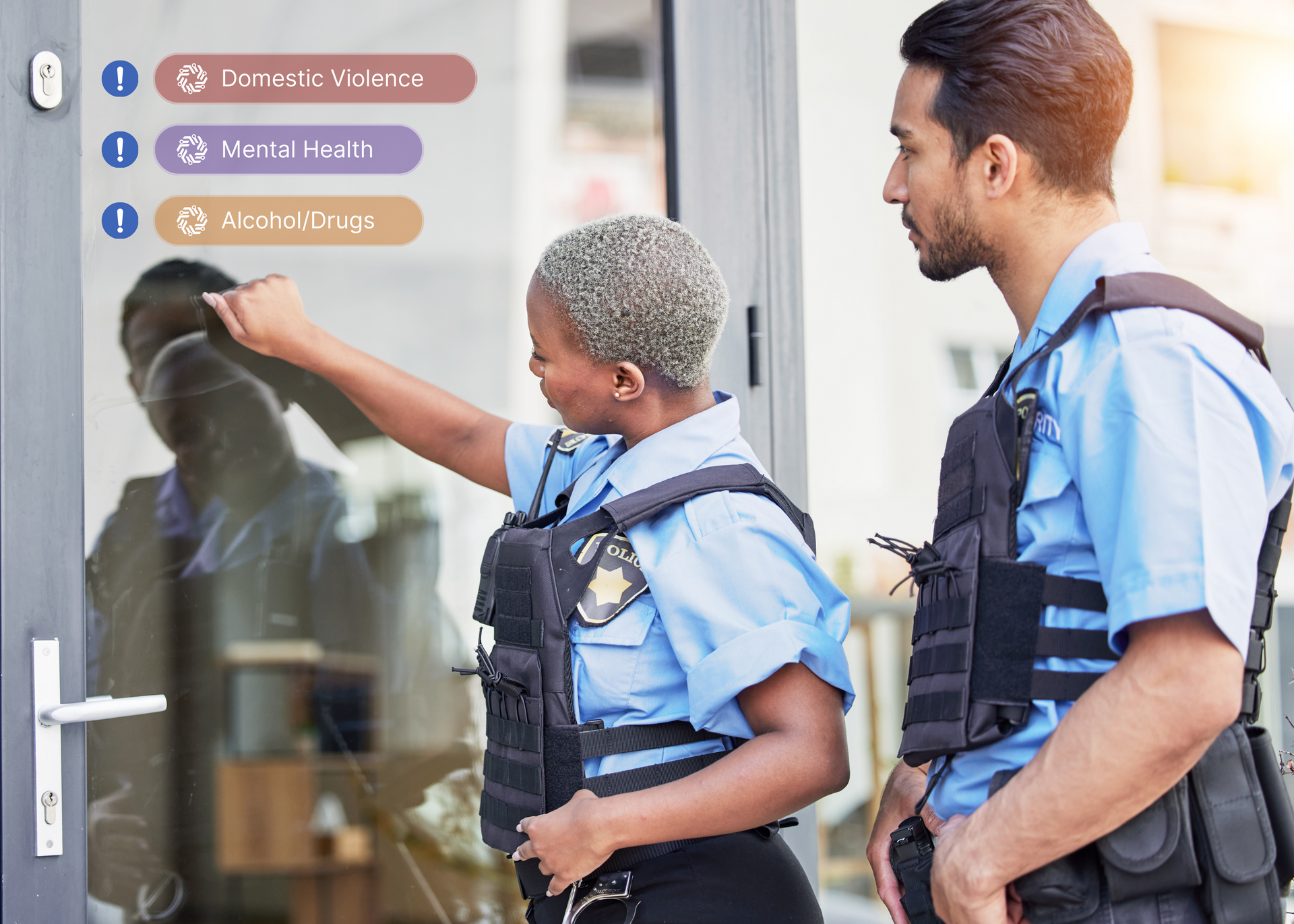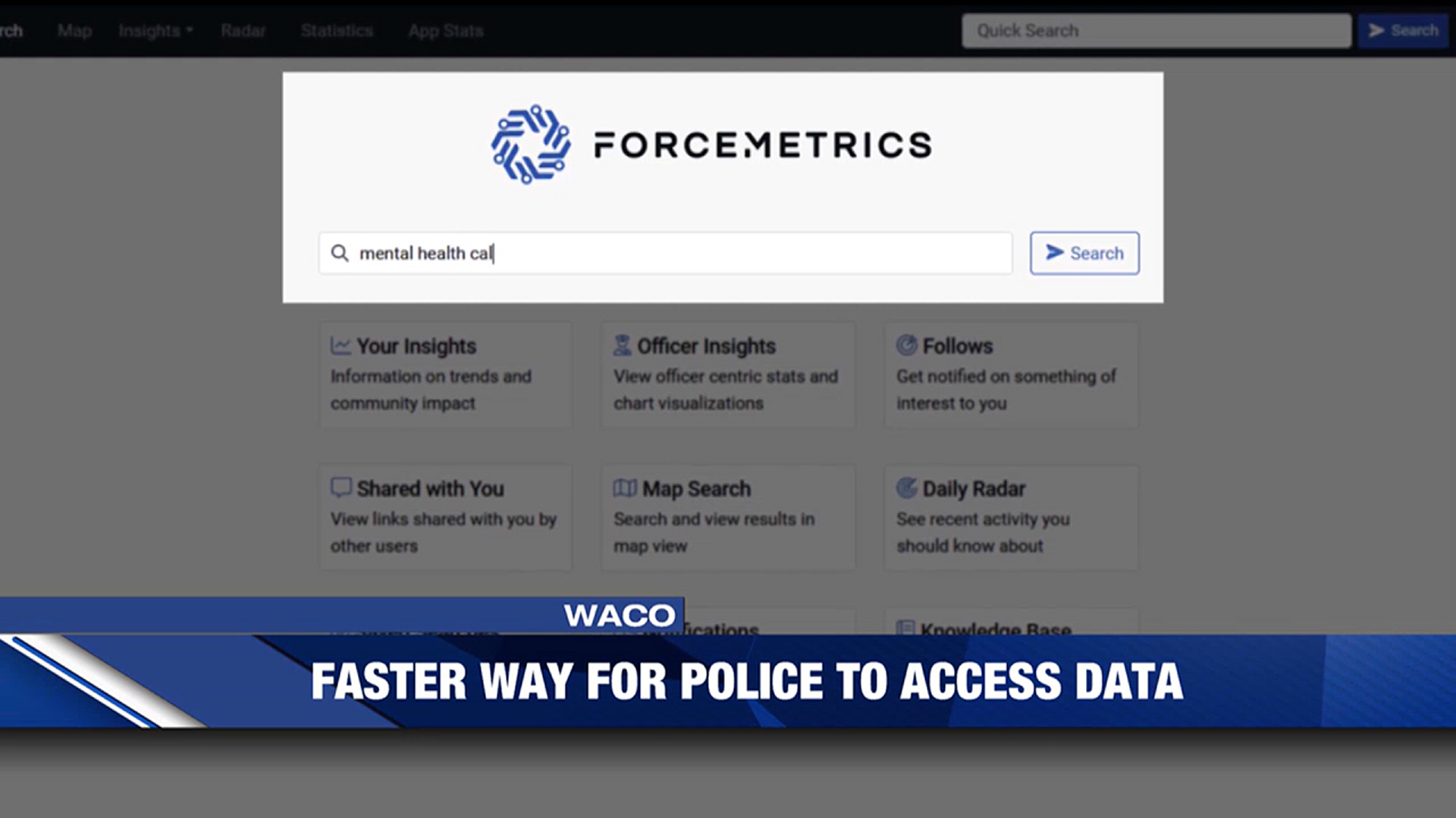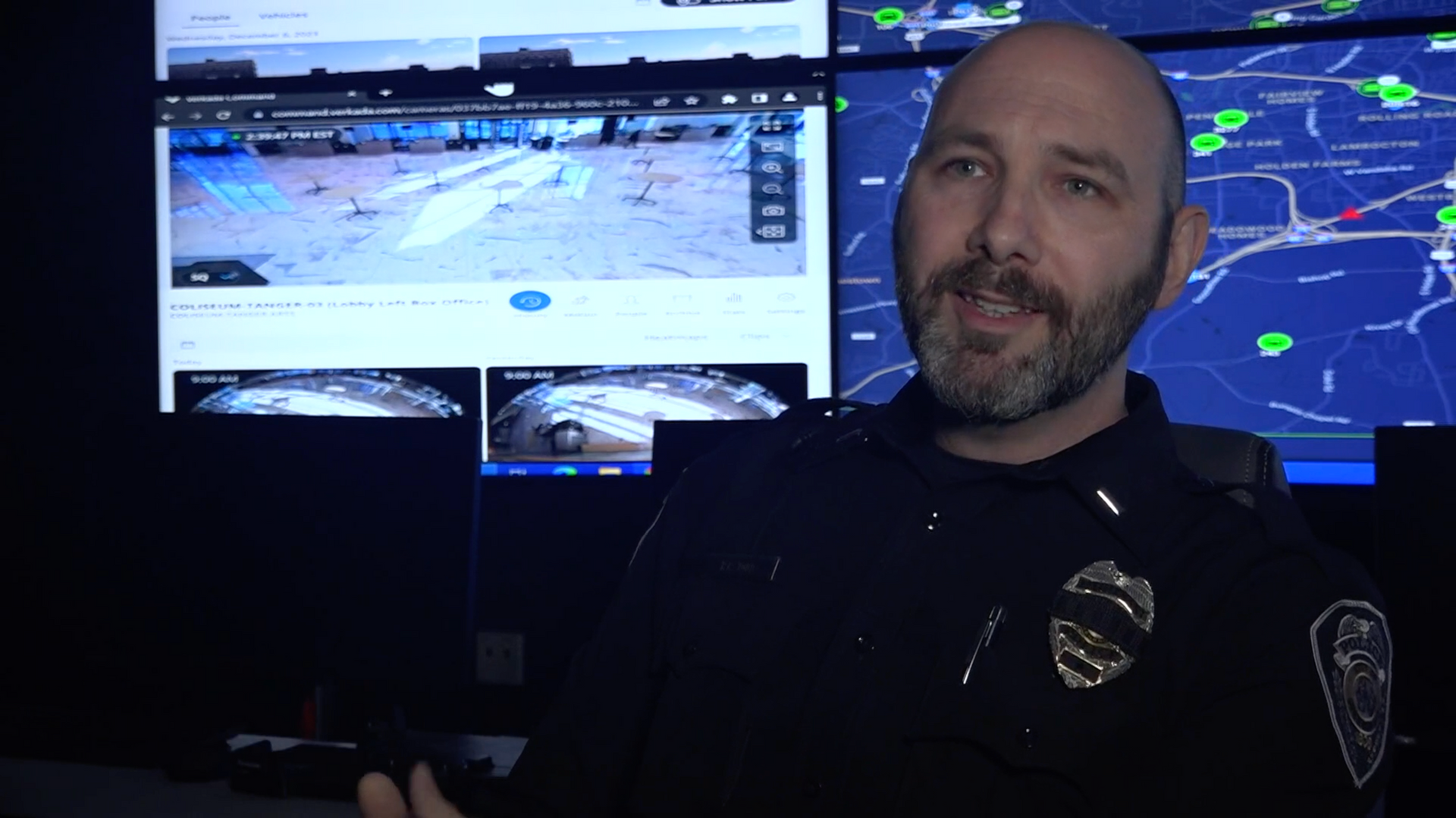Blog Layout
News: ForceMetrics Helps Aurora First Responders
Apr 10, 2024
"ForceMetrics helps us quickly evaluate critical information to better prescribe response, and guide field responders with contextual information that helps them understand the bigger picture."

Aurora, Colorado — The city of Aurora is deploying a new, unique data technology called ForceMetrics, a mobile-first platform that enables public safety and community services professionals to make data-driven decisions in real time. The enhanced use of existing data across several city departments is yielding a greater understanding of community needs and improved, safer outcomes for community members and public servants alike.
The power of ForceMetrics is its ability to combine many separate, existing city databases into a single shared resource, unifying information for rapid access and easy understanding.
“Aurora is one of the most uniquely diverse cities in the nation,” said Jason Batchelor, Aurora City Manager. “ForceMetrics opens the lines of communication and empathy for our public safety and community service responders who frequently interact with the most vulnerable community members. We are now able to quickly access a more complete assessment of an individual or property, using our own data.”
The city departments that are currently utilizing ForceMetrics are Aurora911, the Aurora Police Department (APD) and the Code Enforcement and Crisis Intervention divisions within the Housing and Community Services Department. So far, ForceMetrics is helping Aurora911 to be more efficient in its call management, providing a tool for police officers to make more informed decisions and giving crisis response staff a better understanding of the volume and circumstances of mental health-related calls throughout the city.
ForceMetrics CEO and Colorado native Andre McGregor founded the platform in 2020 centered on the core belief: safety starts with understanding.
“It’s like Google meets Zillow for their data,” said McGregor, who was born in Denver and has since returned to live there to manage ForceMetrics. “As a local, I am incredibly proud to partner with Aurora and be part of the city’s continued innovation. Now they can utilize added safety and social needs information while responding to issues at hand.”
Aurora911 was the first city department to launch ForceMetrics with its entire staff. Emergency communications specialists can search and access vital safety, mental health and historical information in seconds rather than hours, improving the accuracy and appropriateness of resource deployment. Aurora911 is also utilizing the platform to monitor employee exposure to traumatic stress, providing support to 911 professionals who have handled high-acuity events.
“Aurora911 is incredibly proud to have fully integrated ForceMetrics into our operations,” said Tina Buneta, Aurora911 Director. “As a department that receives more than 600,000 calls annually, ForceMetrics provides us with the insights necessary to ensure no member of our team must deal with the aftermath of tough calls alone. 911 professionals must accurately gather, decipher, summarize and act on the information a caller shares within seconds. ForceMetrics helps us quickly evaluate critical information to better prescribe response, and guide field responders with contextual information that helps them understand the bigger picture. It empowers us to meet people where they are and provide them with the most appropriate resources while also supporting the safety of both residents and field responders.”

22 Apr, 2024
Anyone in law enforcement can attest that the more information you have going into a situation, the better the outcome will be. This standard applies to everyday calls for service, high-profile investigations and even walking into the next CompStat meeting. So why is the information still so challenging to obtain? As former law enforcement professionals who both saw and felt these challenges firsthand, the founders of ForceMetrics created a platform to address them.

14 Mar, 2024
Imagine responding to a call with not just the information provided by dispatch, but a comprehensive, easy-to-understand overview of the situation at hand, including the people and places involved, key history, and important social needs and safety risks to be mindful of going in. At ForceMetrics, this is where we focus our efforts to help responders succeed.

18 Jan, 2024
One of many areas where technology is making a significant impact is in the identification of vehicles, providing law enforcement with powerful tools to streamline investigations, enhance public safety, and combat criminal activities. Here we'll explore the innovative ways technology is being used to identify vehicles in policing.

By Jason Truppi
•
21 Dec, 2023
In the dynamic landscape of law enforcement, the concept of stratified policing has emerged as a nuanced approach to addressing the diverse challenges faced in crime prevention and public safety. This evolving strategy recognizes the importance of tailoring policing efforts to specific layers, or strata, taking into account varying levels of crime, time and risk factors, departmental roles, and unique community needs and patterns. Yet the critical factor to a successful stratified policing approach is having the data available to properly assess and distinguish between these characteristics in the first place. Departments need clear, accurate, and contextual data to understand crime patterns and trends and truly put this evidence based policing strategy to meaningful work. Unpacking the Layers At its core, stratified policing involves the careful examination and classification of crime trends and community challenges based on set criteria. This approach recognizes that a one-size-fits-all strategy may not be effective in addressing the complex and multifaceted nature of crime. Instead, law enforcement agencies employing stratified policing seek to understand the unique characteristics of different strata and implement appropriately tailored solutions. The layers in stratified policing are often broken into immediate, short-term, and long-term problems. Immediate problems are generally recognized as isolated calls and incidents, though with varying degrees of significance, taking anywhere from minutes to months to resolve. Short-term problems are those that occur over days or weeks and are either repeat incidents or recognizable crime patterns, such as a series of similar crimes or crimes committed within a hotspot. Long-term problems or priorities exist over months or years, and frequently arise from opportunities created by everyday environmental or behavioral factors. Risk Assessment One key element of stratified policing is the strategic identification and prioritization of areas of focus based on their level of crime or risk factors. By allocating resources more intensively to high-crime areas, for example, law enforcement agents can maximize their impact and create a more targeted response to identified challenges. Community Engagement Building trust and fostering partnerships within the community are integral components of successful stratified policing. Recognizing that different communities have unique needs and concerns, law enforcement agencies actively engage with residents to understand and address their specific issues. This collaborative approach helps to bridge the gap between law enforcement and the community, creating a more effective and responsive policing environment and bolstering public safety in turn. Data-Driven Approaches In our modern world ruled by information and technology, data plays perhaps the single most critical role in shaping effective evidence based policing strategies. Successful stratified policing leverages data and analytics to gain insights into crime patterns and trends within different areas or layers of a community. This information empowers law enforcement to make informed decisions, strategically allocate resources, optimize workflows and performance, and implement targeted interventions where they are needed most. Problem-Oriented Policing Stratified policing goes beyond surface-level crime prevention by addressing the root causes of issues within a community. This problem-oriented approach necessitates effective collaboration with other community agencies and organizations to tackle underlying factors contributing to crime. By addressing these issues head-on, and facilitating open communication and information sharing among community stakeholders, law enforcement agents can create lasting solutions and improve overall community well-being. Conclusion: A Tailored Approach for Safer Communities As law enforcement continues to evolve, the concept of stratified policing stands out as a promising strategy for creating safer and more resilient communities. By recognizing and responding to the unique challenges and needs of our communities with tailored, data-driven approaches, law enforcement agencies can make a lasting, meaningful impact – reducing crime, building trust, fostering collaboration, and ultimately creating a safer environment for all. As this approach continues to develop, it will be essential to stay informed on emerging best practices and adapt strategies to meet the ever-changing needs of our diverse communities. ForceMetrics is actively enabling agencies to leverage clear, contextual data in the implementation of more accurate and successful stratified policing programs. Connect with us to learn how we can help your agency navigate the layers.





